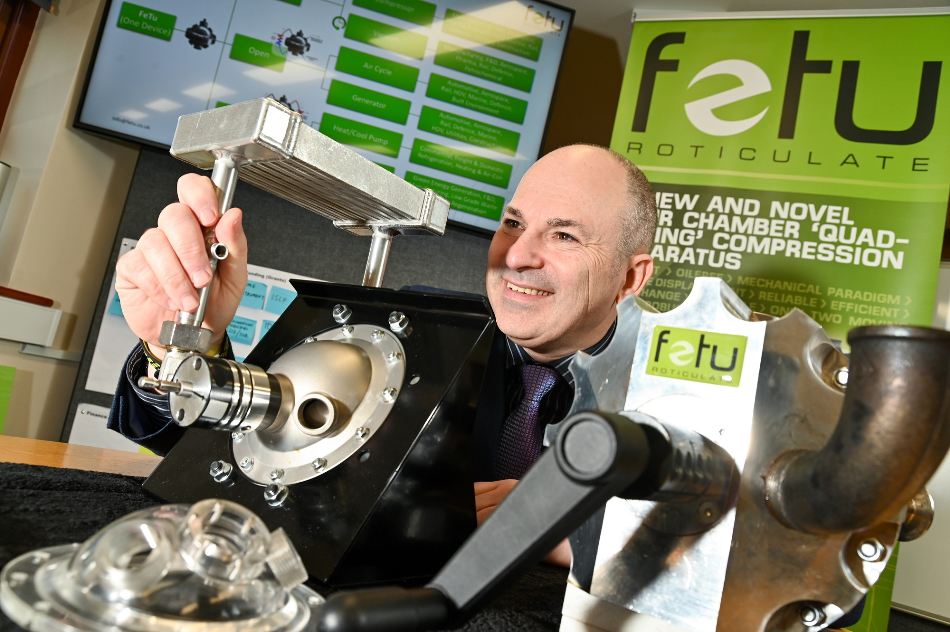Mar 4 2020
FeTu, a Yorkshire startup whose award-winning green energy device has the potential to substantially reduce industrial CO2 emissions by recovering waste heat into electricity, has increased its workforce from four to eight over the past 12 months, with plans to recruit a further three people by the end of the year.
 Jon Fenton, FeTu. Image Credit: FeTu.
Jon Fenton, FeTu. Image Credit: FeTu.
The business will also double its floorspace this month, creating an in-house workshop and test lab at its premises in Elland, as it gears up to bring its innovative technology to the market.
Established in 2017 when designer Jon Fenton left his job at Elland’s Valvetek after a 35-year career in mechanical engineering, FeTu’s innovative technology has been developed with backing from Innovate UK and British universities, including Bath, Brunel, City of London, Glasgow and Huddersfield.
The FeTu drive is a groundbreaking, but simple device, a two-stage turbine designed to reduce both energy consumption and emissions by unprecedented levels, and on a global scale. It has applications in the energy market as well as across a range of other manufacturing industries including aerospace and marine.
Jon Fenton said: “It’s becoming clear the world needs to change quickly to avert a climate catastrophe, and clean, cost effective energy solutions like ours have a crucial role to play.”
“FeTu’s technology has the potential to significantly disrupt how heat and power are connected, enabling a new dawn of efficiency in power generation, propulsion, heating and cooling applications. We are on the brink of transforming the £34bn global compressor market with technology that reduces energy consumption by 25 per cent.”
The compressor variant of the FeTu device is currently being piloted by a Yorkshire-based end user and parts manufacturer and separately, with an innovative OEM in the compressor sector. The business is also attracting interest from growing numbers of large industrial businesses keen to make substantial energy savings created by conserving ambient heat, and generating electricity from low-grade waste heat.
“We are receiving huge interest from industry in the low-grade waste heat recovery capacity of the technology,” added Mr Fenton. “Low -grade waste heat energy represents £4bn a year in the UK alone, and recovering 25 per cent of that would offset the power output of Drax and Hinkley C power stations combined. In terms of carbon, that is 80 million tonnes: 20 per cent of the UK’s annual output,” added Mr Fenton.
FeTu predicts that its technology has the capacity to recover 30-50 per cent of low-grade waste heat, with a one-year return on investment, according to the test cases it has run. “The alternative technologies available at the moment offer a 3-5 per cent efficiency and a 10-15-year return on investment, so analysis puts us ahead of the game by a long way,” said Mr Fenton.
Mr Fenton was given a 2019 Top 100 Award by industry magazine The Manufacturer for his innovation and inspiring leadership in manufacturing. FeTu was awarded ‘best innovation’ at the Advanced Engineering Show 2019.